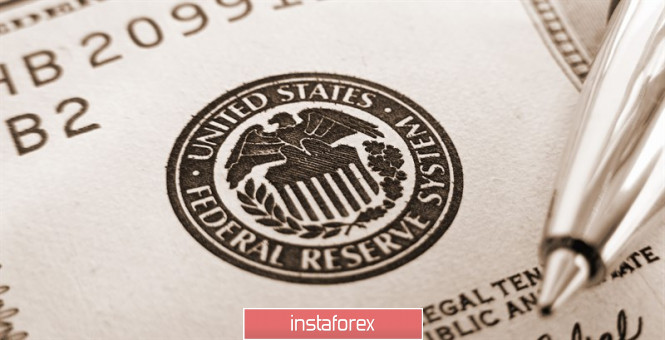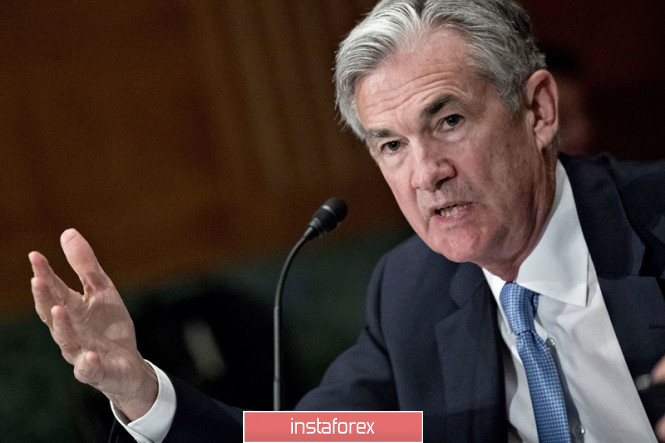
Yesterday, the minutes of the July meeting of the Federal Reserve were published, at which the regulator lowered the interest rate for the first time in 10 years. Transcripts showed that FOMC members' opinions on monetary policy unexpectedly diverged.
Most officials saw interest rate cuts from 2.5% to 2.25% last month as protection against too low inflation and the risks of a sharper reduction in business investment due to the uncertainty surrounding the trade war. At the same time, two of them did not support the decision to soften the monetary policy, while the other two, on the contrary, expressed the opinion that the rate needed to be reduced not by 25, but immediately by 50 basis points. Disagreements within the FOMC are also evidenced by the phrase that the central bank needs to be flexible.
The Fed's claims of flexibility may simply be the regulator's refusal to follow U.S. President Donald Trump. Last Monday, he tweeted that the Fed should lower the rate by at least 100 basis points. According to the head of the White House, even despite such a significant reduction in rates, a quantitative easing may also be required.
The US president, who constantly says that the country's economy is strong, for some reason was not satisfied with the current state of affairs.
According to some analysts, despite the fact that the US administration is trying to convince the public that everything will be fine, in reality it is preparing for the worst.
They argue that the US economy is on the verge of a recession:
- Last week for the first time in 12 years, the differential of returns between ten- and two-year Treasuries went into negative territory;
- Consumer confidence in the United States has fallen to its lowest levels this year;
- Industrial production in the country began to decline;
- Fear and volatility returned to Wall Street;
- According to the Federal Reserve Bank of New York, the likelihood of a recession in the United States in the next twelve months has reached record levels since the 2008 global financial crisis;
- US president suggests the Fed cut rates by 1% as soon as possible and restart the asset purchase program. Any of these actions will be perceived by the market as emergency measures, signifying the imminent approach of serious economic problems.
However, it should be recognized that due to the fading effect of fiscal stimulus and trade conflicts, the United States economy is returning to normal growth rates. However, this is clearly not enough for the owner of the White House, because in his future election program he intends to bet on the rapid development of the economy. Hence the constant criticism of the policy of the Federal Reserve, and the search for various options for accelerating GDP.
In addition, D. Trump obviously understood: in order to force the Fed to cut rates, he only needs to threaten China with new tariffs, which will alarm market participants.

On Friday, J. Powell will speak at a conference in Jackson Hole, and investors will look in his words for hints of the Fed's future plans.
"Powell is between a rock and a hard place and cannot escape. The Fed should give up all principles and go straight to the zero rate, and also start a large-scale QE if it does not want to bring down global markets and lose control of the interest rate without soon starting to expand the balance sheet. Powell can only choose to control the discount rate or the Fed's balance sheet - there is no other choice, as everyone is driven by Trump deficits," said John Hardy, chief currency strategist at Saxo Bank.
According to recent estimates by the Congressional Budget Office (CBO), the US budget deficit will reach $1 trillion two years earlier than previously thought, largely due to the trade war between Washington and Beijing.
Following the results of the July FOMC meeting, J. Powell said that lowering the federal funds rate is not the beginning of a mitigation cycle, and now he will need to somehow avoid the contradictions.
Apparently, the head of the Fed will not make any high-profile statements in Jackson Hole and confirm his previous comments that the US economy is still strong, the Fed softens its policy due to caution and does not see any risks for inflation.
"We believe that, despite aggressive calls, the Federal Reserve will not commit itself to further easing policies, instead adhering to the current approach. An interest rate cut of 50 basis points in September seems excessive to us, because historically it has turned out that larger reductions occur during recessions and rising unemployment, "said Danske Bank experts.
The material has been provided by InstaForex Company - www.instaforex.com